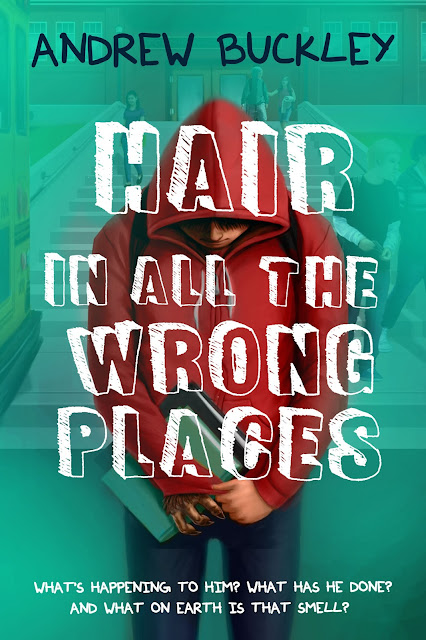This post is part of Curiosity Quills’ A-Z blogging challenge. Click here to check out the rest!
https://curiosityquills.com/category/a-z-blogging-challenge-2016/
One of the most important decisions facing a writer when they embark on the creation of a novel is choosing the point of view from which to tell the story. A different point of view can change the entire feel of a story, and a writer should take care to select the option they feel best suits what they are trying to do. Here are some thoughts on different POV options.
First Person

First person POV allows the reader to experience a story as close as possible. This POV puts the reader smack dab in the character’s head. Sometimes first person is set up like the character is talking directly to the reader, while others an “interview” setup is used. (For example, the main character is recounting the events of the novel to a reporter, or a cop, or some other person… in that end they are ostensibly speaking to that other character.
When a story demands the reader be up close and personal with the main character, first person is the way to go. Be wary of head hopping in first person. If the character narrating the story can’t see, hear, feel, or know something, it shouldn’t be described. For example, if a character is hiding in a dark closet while burglars ransack the house, all the description of what the burglars do should be conveyed by sound. Describe noises that suggest what they might be doing, or share the characters thoughts on what they think the burglars are doing. If the narrator describes the thieves picking through her dresser drawers or trying to work the dial on a combination safe, and she hasn’t opened the closet door to peek at them – it’s an error, as she can’t see them doing it without leaving the closet.
Writing in first person allows the reader to share every emotion, thought, and feeling of the main character while dosing everything liberally with the character’s opinions and attitude. Some stories demand this POV as without the ‘tone’ of the main character’s opinions, they’d come off completely different in feel. The below excerpt is from “The Far Side of Promise,” a short story that demanded I write it in first person.
Futility was something I had long gotten used to since arriving on Planetoid R1840M. Some nimrod in a fancy suit, impressive office, and ridiculously expensive chair decided to name it ‘Promise’―as in a ‘bright new future with Far Horizon Mining.’ The only thing a day here promised was another fourteen hours of ass busting work extracting Mithrinium ore from an obstinate lump of rock. The surface was mostly hard and brittle as glass, with some large swaths of softer dirt and the occasional patch like driving a seventy-ton collector into a lake of wet baby shit.
Yeah, this is paradise.
That’s what the M stood for, by the way. Mithrinium, the highly volatile metallic salt somehow vital to the process of faster than light travel. I’m no chemist; all I know is the crap is worth a fortune, and the last guy to light up a butt within twenty meters of the stuff is probably back to Earth by now―without a ship. Either way, my ass fell for their bullshit story of a better life. Sure, the money isn’t bad, but it’s all waiting Earthside. Not like there’s anything to spend it on out here in the ass end of nowhere, anyway.
In first person, changing the POV character and staying in first person can confuse the reader. For example, in a nonexistent novel, Chapter 1 is Jenny getting ready to go off on a date with Clark, and Chapter 2 is Clark being all nervous about the upcoming evening. If both chapters are written in first person, it can mess with the reader’s head. After chapter 1, they’re acclimated to thinking of “I” as Jenny and hearing things in her voice. When they hit chapter 2 and they hear “I pace around the house, unable to sit still,” it gets confusing as to who “I” is.
While it is possible to pull off rotating POVs with first person it’s a lot harder to keep the reader from getting lost. (One trick I’ve seen done is to have the main character use first person POV and for chapters where someone else is the POV character, use third limited. That way, if the reader is seeing “I do this” and so on, they know whose head they’re in.
Tension and Mystery: for first person, the reader should not be made aware of things the character isn’t. If they’re heading into a building where a bomb has been planted, the reader is going to be as shocked and surprised as the character when they find it. (Hopefully with enough time to run away, or the story’s going to be short.) Likewise, if the protagonist is investigating a murder, the reader is not going to know who the killer is until the end (and the character solves the mystery – or doesn’t).
Inner monologue: sometimes novels present a character’s inner thoughts as dialogue, letting the reader ‘hear’ the little voice in the character’s mind. This is set off by italics.
Wow, coming here was really stupid of me.
In first person, as the entire narrative is told from the POV of being inside the characters head, inner monologue is attributed to the protagonist by virtue of it being inner monologue. They are not going to hear the mind voice of another person (barring telepathy). There is no need to use dialogue attribution for inner monologue (tacking an “I thought” onto it) as by virtue of it being first person, inner monologue is known to be coming from the narrator character.
Pros
Brings the reader right into the character’s head.
High immersion.
Allows dialogue conventions into the narrator voice, as the entire story feels like the main character talking to the reader. Colloquialisms and dialect are usable outside dialogue, and grammar rules take a back seat to the ‘feel’ of the narrative.
Cons
The reader can’t be made aware of anything the character doesn’t experience or know.
A frequent tendency to overuse “I,” as in sentences: “I do this. I do that. I see this” and so on.
Everything is presented in the framework of the main character’s personality. If a reader doesn’t like the character’s tone, it can put them off the entire story.
Second Person

Second person is (thankfully) rare in fiction writing, as it can be quite awkward to read. In this POV, the narrative speaks to the reader. “You approach the end of the corridor. Rusty patches mottle the door in front of you where the grey paint has peeled away.”
Perhaps my eighties are showing, but this tense always makes me think of the “choose your own” adventure type novels. This POV is rare in fiction writing and tends to show up more in “self-help” books, how-to manuals, roleplaying game books, and writing of a similar nature.
Tension and mystery: With second person, the narrative is presenting information to the reader as the reader becomes aware of it, so, like first person, nothing the character/reader is unaware of gets presented. Tension originates from wondering what happens next.
Inner Monologue: Considering the protagonist of second person writing is the reader, there likely isn’t much need to even use inner monologue here.
Pros
If you can pull this off, you’ve joined a short list of novelists who can.
Cons
Awkward.
Prone to overusing ‘you’ in the way that first person can overuse ‘I.’
Third Person (Limited)

Limited third person is arguably my preferred POV as a writer. It combines the exclusivity of the POV character’s experience with a wider “camera angle” so to speak. While everything presented to the reader in limited third must remain within the grasp of the protagonist’s knowledge as in first, this POV does not read like the main character is telling their story.
It is a slight step back from first person, one I compare to standing next to the character as the story unfolds (rather than being the character), but still standing right in the scene with them. Here is an example of third limited from my upcoming vampire novel, Chiaroscuro: Forsaken of Heaven.
Devoted to his preparations, Father Antonio Molinari weathered the bumps and sways of a moving coach while attempting to decipher the rather rushed handwriting of Pope Pius IX. The task would’ve been daunting even in stationary surroundings and without the horrors of Vienna still fresh in his mind. Whenever he closed his eyes to sleep, he found himself surrounded by it again: the chill upon his back, the smell of death, and the sound of fear―a pounding heartbeat in his head. His work for the Order of Saint Michael brought him face to face with sights that defied the science of mankind to explain, and the soul to withstand.
When he could no longer tolerate staring at blurry smears masquerading as words, he wiped at his eyes and sighed. Crumbled bits of red and white wax flaked onto his black pants as he rearranged the pile of missives in his lap, a modest parcel of cloth in the facing seat his only traveling companion. Warm air streaming through the window carried the scent of meadow grass and pollen.
He grasped the red-padded wall when the wheels hit a rough patch. Two lanterns hanging outside the carriage swayed and thumped against the sides. His surroundings pitched and rocked, and the tall grass rushed by, dotted here and there by white sheep and goats. Two teenaged boys and a dog attempted to keep them grouped; the sheep seemed compliant, but the goats went wherever they pleased.
Once the road smoothed, he settled against the plush bench and spread open the letters. The topmost, he had already read four times. A man, Henri Baudin, claimed his daughter suffered the harrowing of Satan. His words were terse, earnest, and packed with desperation. The condition of the paper, worn and refolded, supported the story it had been passed through many hands.
Beneath it laid two replies from local clergy to an inquiry Father Molinari had sent in response to the man’s request. The first, penned by a Father Michaud, claimed the young woman seemed normal to him, and showed little sign of external influence. A deacon from an outlying chapel also wrote to say he believed the woman was only seeking attention. While no one claimed to have witnessed any arguments, the deacon believed she wished to delay or avoid an imminent wedding.
Somehow, the case had been elevated to a bishop who had seen fit to refer it to Molinari’s immediate superior, Cardinal Benedetto.
He’d barely set his bundle down in his room before the summons came.
“No rest for the wicked… or the righteous.” He rubbed fatigue from the bridge of his nose, offering a halfhearted smile at his belongings, as if the lump might answer.
With third limited, it’s possible to change POV among characters, but it should be done in an organized fashion. Ideally, the use of breaks or entire chapters to separate one character’s POV from another. Each section should have a specific character who “owns” the point of view, and the events and thoughts described therein limited to those of the POV character. When something slips in that shouldn’t, like a statement of intention or knowledge the POV character couldn’t possibly be aware of, that’s a “head hop.”
For example, in a chapter where William is the POV character, if he’s talking to a shady character named Carl, and something like this happens:
“Didn’t you tell us the mine would be opened in a week?” asked William.
Carl looked down, chuckling. He needed a few more hours to get the bodies out of there, and couldn’t let anyone – least of all the son of the owner – find them. “Maybe I did, but there’s been an issue with the struts in Shaft C. Inspector’s not lettin’ anyone down there yet. Go on home. I’ll call ya as soon as we get the go-ahead.”
Here, the narrative presents knowledge that is both Carl’s intention (to keep William from going into the mine under false pretenses) as well as knowledge William couldn’t have (there are dead bodies in the mine). In third limited, the above example is a “head hop.” Things should be limited to what William can see or know. However, in omniscient third, the above section would be fine.
Tension and mystery: In third limited, let’s say your protagonist is about to go into a building where the “forces of evil” have planted a bomb. Neither the character nor the reader knows the bomb is there until the character finds it. This creates a sensation of surprise and shock.
Another example of this could be a story about a detective and a killer. Neither the protagonist nor the reader has a clue who the killer is for sure, and every other character they interact with might potentially be the murderer. The reader finds out when the character finds out. Tension comes from not knowing and wondering who it is / trying to figure it out along with the protagonist.
It is possible to present more of a “thriller” than a mystery even in third limited, but it would require a POV shift to show the “bad guy’s” side of things. An alternate chapter where the reader sees out of the killer’s eyes, so the reader knows who the killer is but the protagonist still doesn’t, or the reader gets a POV out of the person planting the bomb before the protagonist shows up at the house.
Inner monologue: Like first person, in third limited, the inner monologue (indicated by italics) represents the current POV character’s mind voice. This inner monologue line appears like dialogue, but in italics, and it does not need dialogue attribution (tags or beats) as it is identified as belonging to the POV character by virtue of it being inner monologue.
For example: [ Coming here was a really stupid idea, he thought. ] is an error as inner monologue in third limited doesn’t need attribution. It’s already attributed to the POV character by virtue of being inner monologue.
Pros
Keeps the reader close to the action (though not quite as close as first person).
Useful for stories where multiple POV characters are used in a rotating basis. (Telling multiple stories that intertwine.)
It is a common POV readers are comfortable with.
Cons
Lends itself to filtering words. Saw, heard, felt, realized. Filtering (while not an error) lessens immersion and weakens the writing.
May tempt writers into head hopping when the narrative presents things the POV character couldn’t know or experience.
Third Person (Omniscient)

Omniscient third is another step back away from the character. If third limited equates to the reader standing in the scene near the character, omniscient is more like the reader is watching the story on a screen. They’ve been removed from the scene and are no longer limited to the thoughts and experiences of one character at a time.
Many beginning writers gravitate to omniscient narration for various reasons, presumably out of a desire to “show everything” to the reader. Paradoxically, omniscient is more difficult to write well than third limited. A lot of new writers mistake excessive head hopping for writing in omniscient third. There are times when writing done in third limited looks identical to writing done in third omniscient, the difference lies in the nature of the information presented to the reader. It’s a common mistake to set out to write in omniscient third, but produce what is essentially third limited with a ton of head hops. The primary difference lies in being objective versus subjective.
True omniscient third uses an objective perspective where the narrator has no emotional bias or perspective skew in favor of any of the characters. Third limited, by default, is subjective toward the POV character, tinting things with that characters opinions and bias. A poor implementation (where an attempt to write in omni produces head hoppy third person) creates a confusing tangle of rotating subjective perspectives.
The challenge when writing in omniscient (and why I will admit I am not a fan) is the distance it creates between the reader and the characters/action. With the extra layer of separation between characters and reader, creating that feeling of being immersed in the action becomes more difficult. When done well, it allows for complex multi-layered stories, but it’s easy to wind up with a book where the reader never quite gets past that feeling of “staring at words on a page” rather than being in the world.
I often grumble about filtering and how it lessens immersion. Omniscient narration is another type of removal from the action. In third limited, filtering makes the reader feel like they’re watching the story happen on a screen rather than being in there with the character. Omniscient narration also feels like the story is happening on the screen. Filtering inside omniscient narration is like having the television on in the other room and all the reader’s getting is the audio. (For more information on filtering check out: https://www.matthewcoxbooks.com/wordpress/2014/03/28/writing-on-filtering/ )
Tension and Mystery: with omniscient, the narration contains all sorts of information from a “top down” view that the character doesn’t know. Rather than take the reader along while the bomber plants the bomb, the narrative may simply use a device like “Bob walked into the house, unaware that Dave planted two pounds of C4 in the basement on a six minute timer.”
In omniscient writing, the tension comes from knowing things the protagonist doesn’t, and watching them careen toward the apparent disaster they’re blithely unaware of. Also, the narrative is free to add deeper and deeper bits of information that the character has no way to know. For example, the narrative might mention something that the previous owner of the house did fifty years ago before the protagonist was born, and a long-standing feud between them and some corporation. Another example: Consider a scene where characters miraculously survive, say, a train crash. The narrative may tell us that the empty lot their train car rolled through once contained a house destroyed in a tornado… and the only reason it remained an empty lot (and didn’t have another building there which would’ve killed the characters) was that the insurance company continued fighting the claim.
Inner monologue: in omniscient third, the reader is never “in anyone’s head” specifically, so inner monologue needs attribution like other dialogue, as it has no default POV.
Man, coming here was a damn stupid idea, thought Ronald.
Pros
Allows the author to show things to the reader that the protagonist does not know. Also allows showing things that no characters know.
Useful in stories where the inner thoughts and feelings of multiple characters need to be shown to the reader often within the same chapter, and scene breaks / POV shifts would be too numerous or clumsy otherwise.
Cons
May lend itself to long swaths of exposition that interrupt the flow of a scene as unnecessary details are presented.
Low immersion. The reader is not brought as close into the story as other POVs.
More difficult to pull off well than other POVs. Easy to mistake third limited with head hops for omniscient.
Tense
I once read something in third person present tense, and never quite managed to pierce that feeling that “I am reading a book” versus being part of the story. Third present sounded like I’d had the auditory captioning turned on for a TV show, a voice-over narrator describing what the character did. I suppose it didn’t help that the writer made consistent use of short, choppy sentences:
Bill sits at his desk. Bill turns on the computer. The screen lights up. Bill opens a program and starts typing. The phone rings. Bill picks up the phone.
Most of the book read like that, and it didn’t do much for me.
Other than that, the choice of past or present tense is a style decision. First person present (I walk to the window and look down at my parents unloading the car.) vs past (I walked to the window and looked down at my parents as they unloaded the car.) doesn’t have as much of an impact on the feel of the story as the decision between first or third person. The most important thing to do with tense is to ensure consistency. Be careful not to drift back and forth from one tense to another, especially if you are trying something new (present tense) that you aren’t used to writing in.
Tense can also be used for effect, such as a story wherein the “real time” events are narrated in present tense while frequent flashbacks are written in past tense. In this way, tense can provide a subtle clue to the reader to reinforce that the flashback parts are in the past.
Choose Wisely
When you’re planning out a story, take some time to consider what point of view will help the most. Is it important to keep the reader in the dark along with the character? (Choose first or third limited). Is it vital that the reader knows what everyone is thinking at all times? (Choose omniscient and put on a helmet). Are you writing a manual, guidebook, or doing something quirky? (Consider second but be wary).
Happy writing!
-Matt






